Electrical and Power Training Package, Intermediates, 10 Practical Exercises
$329.00 $164.50 Student Discount
There are lots of Electrical and Power engineering projects that are simulated by ANSYS Fluent software using CFD methods. This training package includes 10 practical exercises related to the Electrical & Power Engineering field and devices at the INTERMEDIATE level.
Click on Add To Cart and obtain the Geometry file, Mesh file, and a Comprehensive ANSYS Fluent Training Video.To Order Your Project or benefit from a CFD consultation, contact our experts via email (info@mr-cfd.com), online support tab, or WhatsApp at +44 7443 197273.
There are some Free Products to check our service quality.
If you want the training video in another language instead of English, ask it via info@mr-cfd.com after you buy the product.
Description
Electrical & Power ANSYS Fluent Training Package, 10 Practical Exercises for INTERMEDIATE Users
Power Engineering is one of the primary areas that has expanded within Electrical Engineering. It deals with the generation, transmission, and distribution of electric power. Power engineers also work on a diversity of power devices and on power conversion (the process of transforming power from one form into another, as in electromechanical or electrochemical processes).
There are lots of Electrical and Power engineering projects that are simulated by ANSYS Fluent software using CFD methods. This training package includes 10 practical exercises related to the Electrical & Power Engineering field and devices at the INTERMEDIATE level.
Battery Thermal Management
Practical exercise number 1 simulates the cooling process of a battery (battery cooling) and thermal management by applying phase change material (PCM). Modeling is related to a lithium battery used in electrical vehicles. The battery is the main source of electricity and the essential part of the car’s electrical system. Problem number 7 simulates the thermal management of the battery using a Two-Phase Nanofluid. This simulation is related to a Dual-Potential MSMD (multiscale multidomain) battery model. Generally, a battery can store electrical energy in chemical energy.
Air Conditioning of Transformer Room
Problem number 2 simulates the air conditioning inside a room where the transformers are located. Transformers are basically devices that can transfer electrical energy between two or more windings through electromagnetic induction, and as a result, a variable current in the primary winding of the transformer generates a variable magnetic field, which leads to voltage production in the secondary winding. These transformers are placed in a room due to safety issues, in which an optimal air conditioning system should be used where the transformers are stored.
MHD & EHD (Electrical & Power)
In project number 3, nanofluid flow in a three-dimensional solid aluminum channel in presence of an applied magnetic field is simulated to investigate the heat transfer. Fluid flow is steady and is simulated as one single-phase flow, however, the thermophysical properties of nanofluid are calculated using formulas. The surface average of the nanofluid’s temperature is equal to 293.2K and 304.175K at the inlet and outlet, respectively. Problem number 4 simulates a 2-D magnetic field’s effect on a nanofluid in a two-dimensional channel. Channel’s inner space is made of nanofluid, and its outer layer is made of aluminum. The nanofluid defined in the model is made of iron oxide called Fe3O4 and contains 2% nanoparticles. Issue number 9 concerns the simulation of airflow around a NACA 0015 airfoil applying magnetic force (MHD). This airfoil is a symmetrical airfoil that does not produce a lift force at zero attack angle, and we investigate the lift coefficient of this airfoil at different attack angles with and without magnetic (MHD) force. In this problem, we study the separation and the maximum angle of attack where the separation does not occur.
In project number 5, nanofluid flows in a bumpy channel in presence of an applied electrical field EHD(electrical potential). Fluid flow is steady and is simulated as one single-phase flow, however, the thermophysical properties of nanofluid are modified. The electrical characteristics of nanofluid alter the fluid mechanics’ behavior of flow which results in heat transfer increase.
Wind Turbine (Wind Farm)
Problem number 6 simulates wind turbines (HAWT) with the series arrangement in a wind farm. In this project, four wind turbines are designed in a row in a specific computational domain of a large field called a wind farm (turbine farm). A wind turbine is a piece of equipment in the category of turbomachines that uses wind kinetic energy to generate electricity; In this way, a strong wind flow at high altitudes causes the turbine blades to rotate, and by rotating the central shaft of the turbine, an electric current is generated in the generator connected to the turbine body.
Fuel Cell
Practical exercise number 8 is going to simulate a fuel cell. The fuel cell used in this simulation is a type of polymer electrolyte membrane fuel cell (PEMFC). The model consists of two main cathode and anode segments, each of which has four layers, including a flow collector, a flow channel, a gas distribution area, and a catalytic section, and the space between the anode and cathode layers are filled by the polymer membrane.
Electrical Motor Impeller
Finally, in project number 10, the airflow passing over an electrical motor impeller is investigated. The airflow enters the computational domain at 80m/s, and the impeller rotates at 1000rpm. It should be noted that the MRF (frame motion) method has been activated to model the rotation of the impeller.


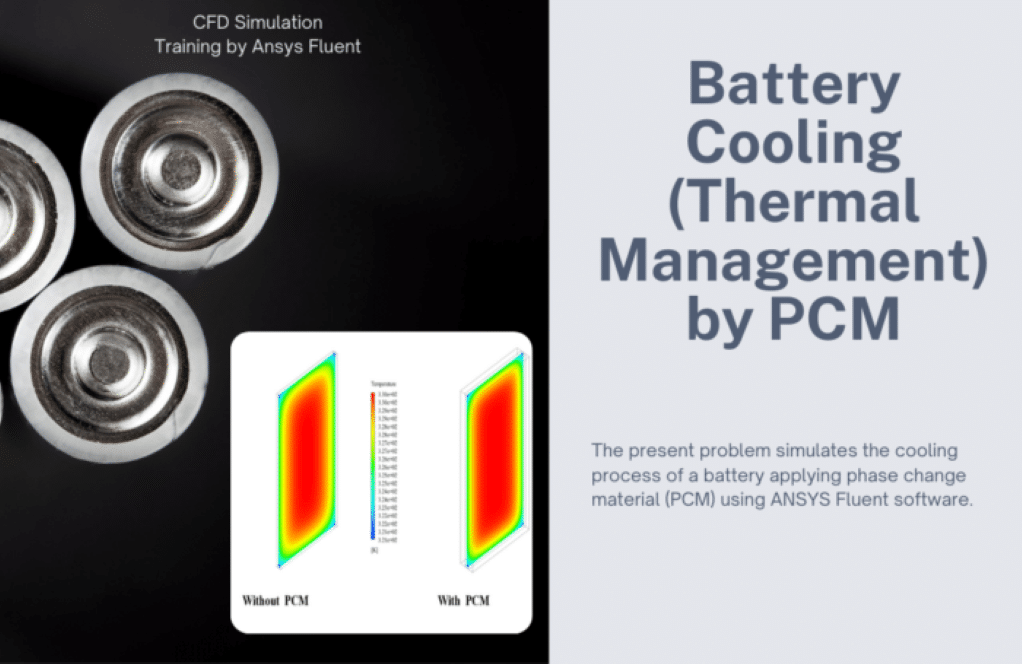
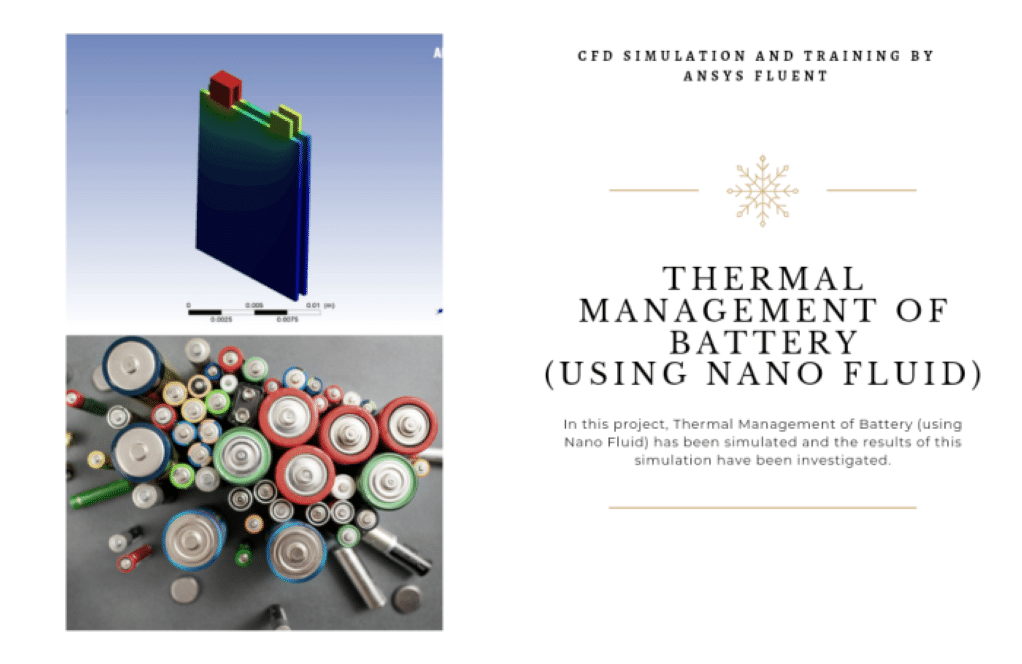
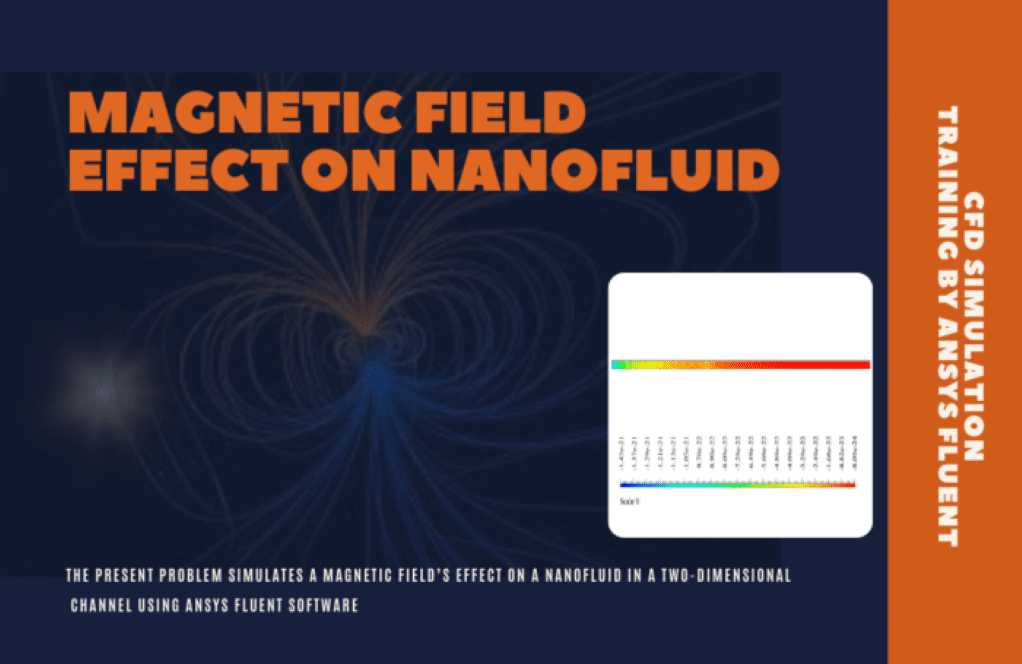

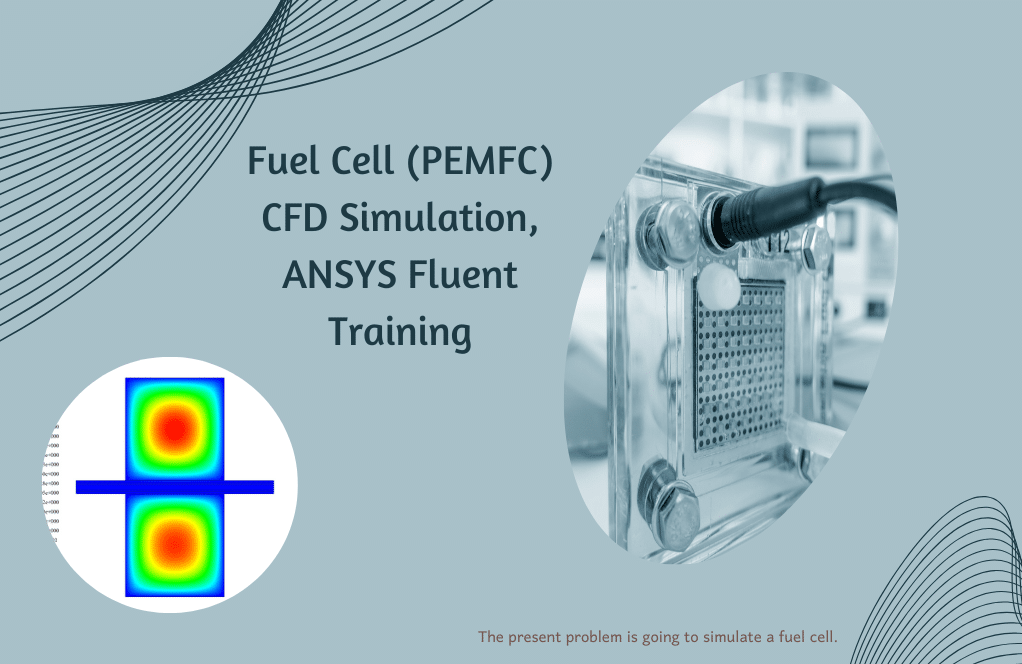
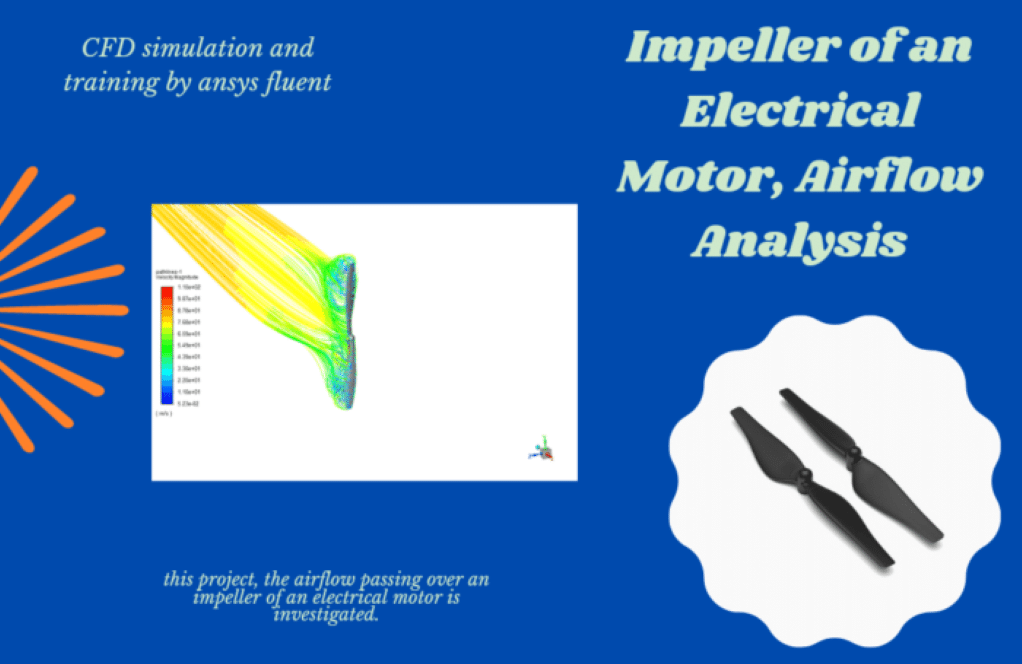
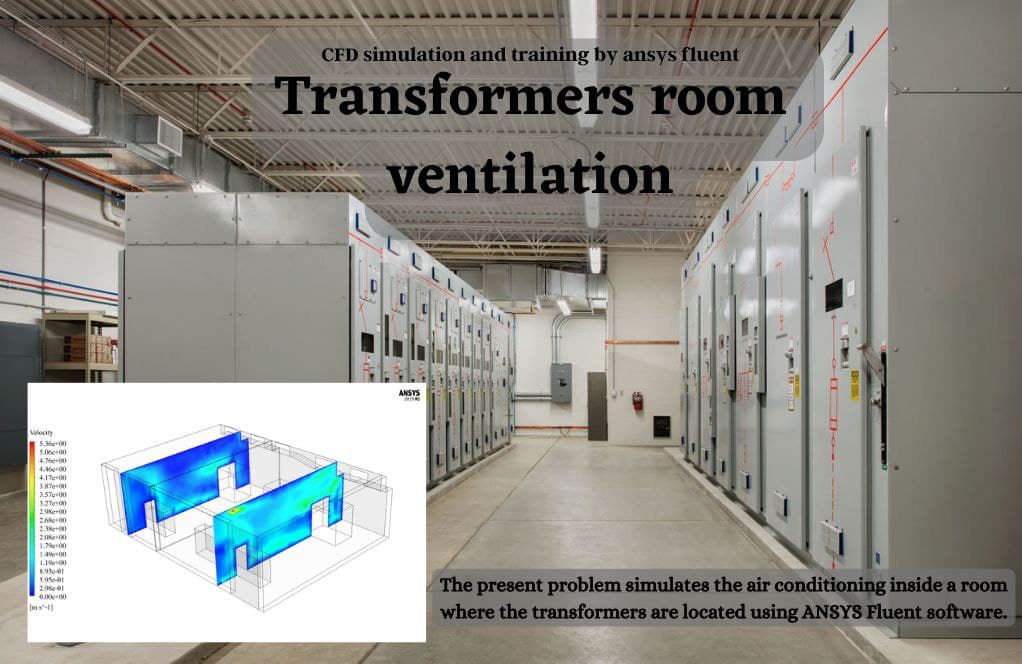
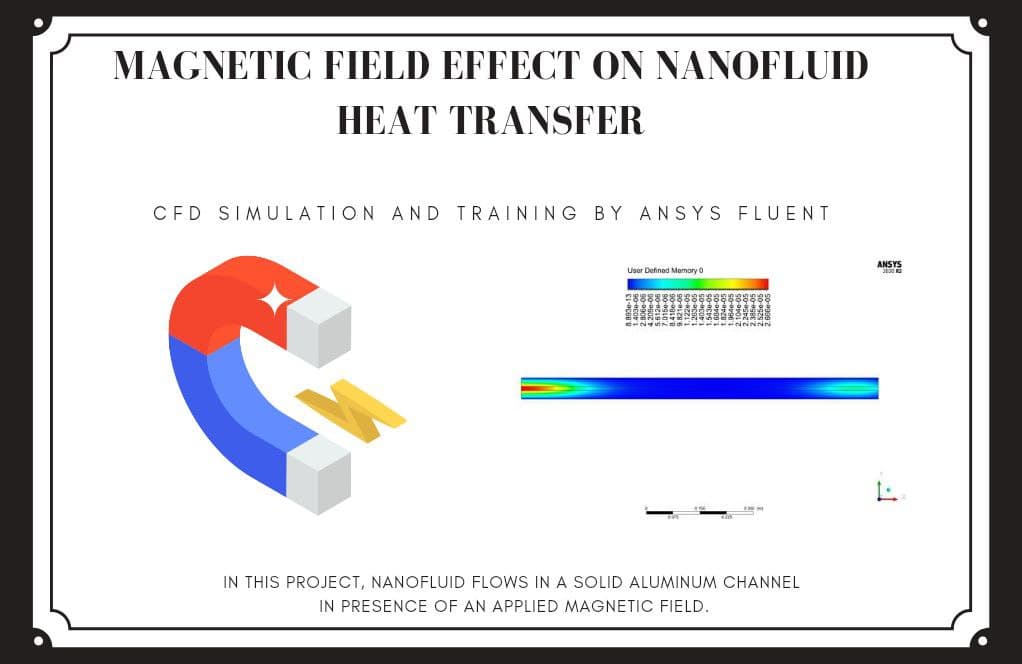
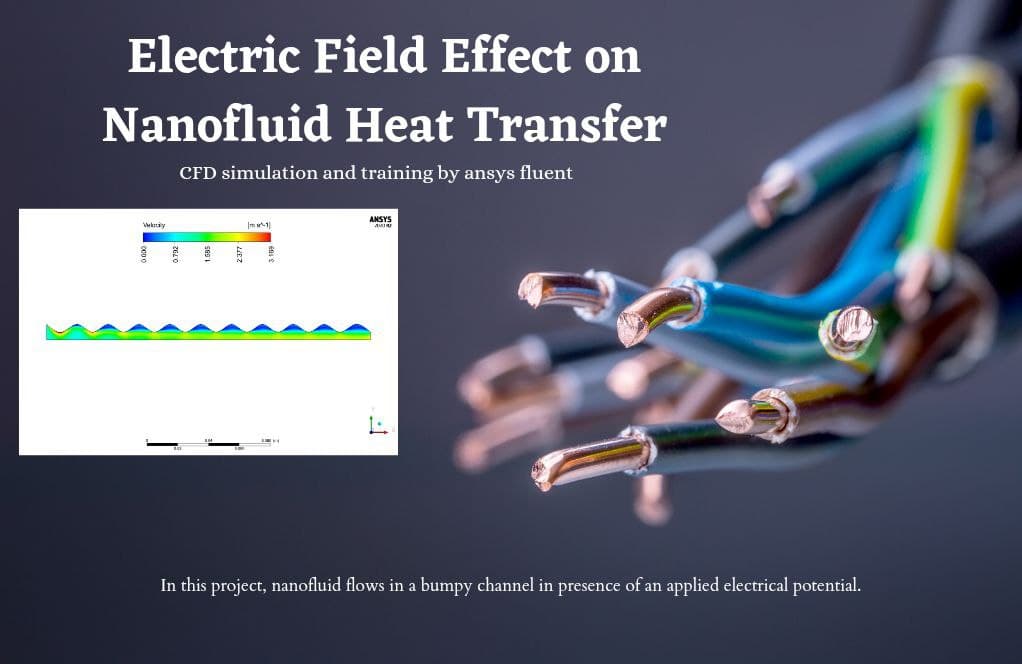
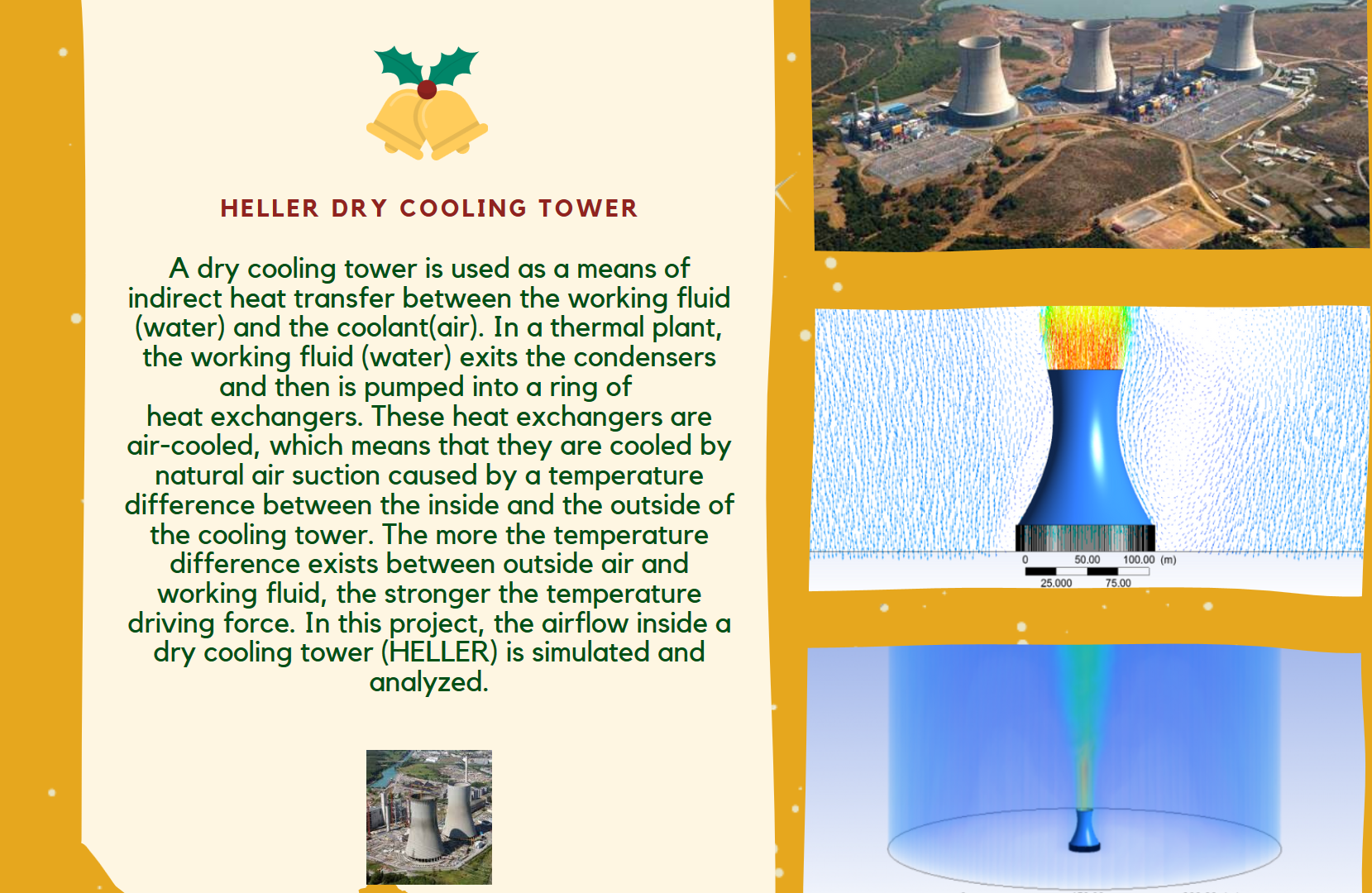


Dereck Towne –
This training package seems intensive and detailed. Can you please tell me how suitable it would be for someone who only has basic knowledge of electrical engineering?
MR CFD Support –
Given that this training package is designed for INTERMEDIATE users, it is expected that users have some foundational knowledge in electrical engineering and are familiar with the basics of CFD. However, if you have a grasp on basic concepts and are willing to put in the effort to learn and understand the more advanced simulations, it should be beneficial even to those who are not yet experts. Each exercise is crafted to build on your existing knowledge and challenge you to expand your skill set in both electricity and power using ANSYS Fluent.
Mollie Jacobson –
The Electrical and Power Training Package seems extremely robust, but I’m curious, does it include any tutorials or additional resources for users to better understand the more complex simulations?
MR CFD Support –
Yes, the Electrical and Power Training Package includes comprehensive tutorials and step-by-step guidance for each practical exercise, ensuring users can understand and navigate through the more complex aspects of the simulations.
Addie Gusikowski –
The package provided comprehensive insights and valuable knowledge on fluid dynamics in electrical engineering contexts. The practical exercises enhanced my understanding remarkably!
MR CFD Support –
Thank you for your positive comments! We’re so glad to hear that you found the practical exercises helpful for building your understanding in both fluid dynamics and electrical engineering applications. Your feedback is greatly appreciated, and we hope our products continue to support your learning and development.
Prof. Alex Gerlach Jr. –
I’ve just completed the Electrical and Power Training Package with the 10 Practical Exercises and had a blast with the simulations! The battery thermal management practices were incredibly insightful, and the level of detail for the MHD & EHD examples was outstanding. I also enjoyed the wind turbine simulations – the connection to real-world applications made the projects even more engaging. Overall, a fantastic learning experience for an intermediate user like me!
MR CFD Support –
Thank you for your positive feedback! It’s fantastic to hear that you’ve enjoyed the Electrical and Power Training Package and found it both insightful and engaging. We take great pride in offering detailed and application-connected training exercises. We look forward to providing you with more learning opportunities in the future!
Elvera Legros –
I recently purchased the Electrical and Power Training Package and worked through the practical exercises. I really enjoyed the variety of applications from thermal management of batteries to investigating airflow around an airfoil with MHD force. The step-by-step tutorials were highly beneficial in helping me understand the complex interplay between fluid flow, heat transfer, and electromagnetic fields. Kudos to the MR CFD team for compiling such a comprehensive and pedagogical set of tutorials.
MR CFD Support –
Thank you so much for your compliment! We’re thrilled to hear that the Electrical and Power Training Package met your expectations and proved to be insightful for your studies in CFD applications. Our team takes great pride in crafting our tutorials to make complex concepts accessible and enjoyable to learn. We appreciate your kind words and hope to continue providing valuable learning materials for our customers.
Johnnie Gerhold –
I’ve been working on electrical and power projects and found the Intermediate Training Package very beneficial. Practicing with these simulations sharpened my skills, especially with the thermal management of batteries and the MHD projects with their complex magnetic interactions. Anyone involved in Electrical Engineering using ANSYS Fluent would appreciate the depth of these exercises. Well done on compilation.
MR CFD Support –
We are thrilled to hear that our Electrical and Power ANSYS Fluent Training Package for intermediate users has been so beneficial to you. It’s fantastic to know that the exercises on battery thermal management and the MHD projects were particularly helpful. Thank you for sharing your positive experience and for recognizing the effort that went into compiling these practical exercises. We appreciate your feedback and are glad we could contribute to advancing your skills.
Ike Mueller –
I finished all the exercises in the Electrical and Power Training Package. Exceptionally well-organised content that offered deep insights into each simulation scenario, making complex concepts understandable. Are there any advanced modules that build upon these exercises for more sophisticated projects?
MR CFD Support –
Thank you for your kind words and I’m glad you found the training package insightful. Yes, MR CFD Company offers advanced levels of training that include more sophisticated simulations building upon the intermediate exercises you’ve completed. If you’re interested in furthering your knowledge, we encourage you to explore those modules.
Wilford Padberg –
I’m impressed with how comprehensive the Electrical and Power Training Package is, especially the inclusion of exercises that cover thermal management for batteries and air conditioning for transformer rooms. It’s clear that a lot of thought has gone into making these simulations practical and relevant to modern power engineering.
MR CFD Support –
Thank you for your positive feedback! We are glad that you find the Electrical and Power Training Package to be comprehensive and helpful for understanding practical scenarios in power engineering. We always strive to keep our exercises relevant and in line with the current industry standards. If you have any further comments or need assistance with your training, please let us know!
Ms. Kaela Gottlieb –
This Electrical and Power ANSYS Fluent Training Package is a comprehensive treasure trove for intermediate learners! I dove into each practical exercise and they proved to be both challenging and enlightening. The real-world applications meshed with theoretical know-how gives a solid understanding of fluid dynamics in the electrical engineering landscape. I admire the inclusion of varied simulations from battery cooling methods employing PCM to maximizing efficiency in wind farms. Each question mark I had at the beginning was smoothly ironed out by the hands-on experiences. Kudos to the MR CFD team for assembling such a practical learning adventure!
MR CFD Support –
Thank you so much for sharing your experience! We’re overjoyed to learn that our Electrical and Power ANSYS Fluent Training Package met your expectations and helped clarify concepts in fluid dynamics related to power engineering. It’s fantastic to hear that your questions were answered throughout the practical exercises, and we are delighted to have been a part of your learning journey. Your kind words are the inspiration we need to keep delivering quality training. Please continue to explore and learn with us!
Kamryn Mueller –
I am eager to delve deeper into thermal management practices with nanofluids. Which practical exercise covers this and what outcomes can I expect from it?
MR CFD Support –
In project number 3 of the Electrical & Power Training Package, you will explore nanofluid flow in a three-dimensional solid aluminum channel in the presence of an applied magnetic field to investigate heat transfer. This demonstration enables you to understand how the thermophysical properties of nanofluids alter fluid mechanics and consequently enhance heat transfer. Additionally, in project number 7, the thermal management of a battery using a Two-Phase Nanofluid is emphasized. These exercises will provide outcomes such as insight into thermal behavior, efficiency of cooling systems, and application of external fields to control and optimize thermal processes in engineering designs.
Dr. Willard Metz Sr. –
I’ve recently completed the ‘Battery Thermal Management’ practical exercise with PCM in the Electrical and Power Training Package. The simulations were insightful, and I’ve gained a much deeper understanding of thermal management in EV batteries. Highly recommend for any intermediate user looking to upskill!
MR CFD Support –
Thank you so much for your kind words! We’re thrilled to hear that the ‘Battery Thermal Management’ exercise provided you with valuable insights and helped deepen your understanding. We appreciate your recommendation and are glad our training package is supporting your upskilling journey. If you have any further feedback or need assistance with other exercises, please feel free to reach out!
Cindy Stoltenberg –
I recently completed the practical exercises of the Electrical and Power Training Package. I found the blend of challenges involving PCM, Two-Phase Nanofluid, and MHD/EHD particularly enlightening, and they significantly contributed to deepening my understanding of thermal management and fluid dynamics in power engineering applications. The variety in exercises allowed me to test the learned concepts in diverse scenarios, boosting my confidence for real-world applications!
MR CFD Support –
Thank you so much for your wonderful review! We’re thrilled to hear that our Electrical and Power Training Package has been helpful and educational in advancing your knowledge of power engineering applications with ANSYS Fluent. It’s great that you’ve gained a broader perspective and improved your skills across different simulation challenges. Your feedback is much appreciated, and it motivates us to continue developing high-quality learning materials for our users. Keep up the great work!
Candice Stoltenberg –
This training package is very comprehensive! Learning about battery thermal management was incredibly interesting, especially the use of phase change materials. Can you tell me if the exercises include troubleshooting tips in case the simulations have convergence issues?
MR CFD Support –
In this training package, we aim to provide a full understanding, which includes addressing potential challenges one might face during simulations, like convergence difficulties. Rest assured, guiding tips and strategies for troubleshooting are available to aid learners in managing and rectifying any simulation convergence issues they encounter.
Norma Towne –
This training package seems quite comprehensive. Are these videotutorial or text-based lessons?
MR CFD Support –
The Intermediate Electrical and Power Training Package consists of text-based instructional content and corresponding ANSYS Fluent project files. In some cases, video tutorials may also be provided to aid in complex simulations and provide visual guidance through the steps of the CFD analysis process.
Richie Goyette –
This training package is well-structured and thorough, covering a wide range of important topics in power engineering simulations with practical exercises ideal for intermediate users. From battery thermal management to transformer room air conditioning and wind turbine simulations, the step-by-step learning approach is excellent for gaining advanced knowledge in the field.
MR CFD Support –
Thank you for your kind words! It’s great to hear that you’ve found the training package comprehensive and beneficial. We strive to create detailed and valuable learning experiences for our users. If there’s anything else we can assist you with on your journey to mastering power engineering simulations, don’t hesitate to reach out.
Pinkie Gibson –
This comprehensive training package on Electrical and Power Engineering leveraging ANSYS Fluent software sounds exceptionally well-structured. With a good mix of practical exercises that encompass a range of applications like battery thermal management, air conditioning of transformer rooms, and magnetohydrodynamics, there seems to be ample opportunity for skill enhancement. Kudos to MR CFD Company for assembling such an effective educational resource for intermediate learners!
MR CFD Support –
Thank you for your positive feedback! We’re thrilled to hear that our Electrical and Power Engineering training package has provided you with a valuable learning experience. Your recognition of the variety and application scope of our exercises means a lot to us. If you ever need further assistance or more advanced training materials, don’t hesitate to reach out. We’re committed to supporting your continued learning and growth in ANSYS Fluent!
Miss Sandra Sawayn –
This training package sounds very comprehensive! Are the project files or step-by-step instructions included for each problem so I can follow and learn the simulations on my own?
MR CFD Support –
Yes, the training package is designed to be user-friendly and includes all the necessary project files or detailed step-by-step instructions to ensure you can learn and replicate each CFD simulation independently.
Dr. Deshawn Nienow V –
Just wanted to share how impressed I am with the Electrical and Power Training Package for intermediates from MR CFD. The array of practical exercises included not only enhanced my understanding of various power engineering principles but also provided hands-on experience with ANSYS Fluent. It’s remarkable how each problem is designed to challenge and build upon my skills, from battery thermal management to airflow around airfoils. The project on thermal management using a Dual-Potential MSMD battery model was especially intriguing, providing valuable insights into modern energy storage solutions. Thank you for creating such a well-rounded learning program.
MR CFD Support –
We really appreciate your positive feedback on the Electrical and Power Training Package! It’s wonderful to hear that the practical exercises were both challenging and beneficial for your learning experience. Our team puts great effort into designing these scenarios to simulate real-world problems and to help intermediates like you deepen your ANSYS Fluent skills and knowledge in power engineering. Thank you for choosing our training package and for taking the time to compliment our work. Your success is what motivates us to keep improving our learning materials. If you have any questions or need further assistance as you continue to learn, don’t hesitate to reach out!
Prof. Diamond Gleason DVM –
I was particularly intrigued by the use of phase change material in battery thermal management from practical exercise number 1. Could you explain how PCM enhances the cooling process?
MR CFD Support –
In practical exercise number 1, phase change material (PCM) is utilized for its ability to absorb and release large amounts of heat as it changes phases, usually from solid to liquid and vice versa. This property makes PCM an effective solution for battery thermal management because it can maintain the battery at an optimal temperature by absorbing heat when the battery gets too warm. This helps in preventing overheating, improving the battery’s efficiency and longevity.
Floyd Kling –
The training package sounds extensive. Was the interface user-friendly for beginners who might be attempting these intermediate exercises?
MR CFD Support –
Thanks for your feedback! For beginners moving up to intermediate exercises, they generally find the transition manageable with our progressive learning curve. The package is designed to bridge gaps in expertise, with tutorials aimed at enhancing user confidence. Should any user need further assistance, we provide robust support and additional resources to ensure a smooth learning experience.
Will Kris –
The package sounds comprehensive! Are solutions for potential problems with thermal management presented in this training?
MR CFD Support –
Absolutely! The training package includes practical exercises focused on battery thermal management, showcasing techniques such as the implementation of phase change materials (PCM) and Two-Phase Nanofluid for effective thermal regulation, offering valuable insights for potential problem-solving in thermal management scenarios.
Mittie Conroy –
These practical exercises seem really comprehensive. Do you think I will need any prior knowledge of fluid dynamics or electromagnetism before tackling these simulations?
MR CFD Support –
It’s beneficial to have a background in fluid dynamics and electromagnetism to more effectively understand and engage with the simulations. However, the learning products are designed for intermediate users, which typically include tutorials and step-by-step guidance, making them accessible even for those with basic prior knowledge.
Mrs. Margie Smith DDS –
The Electrical and Power Training Package seems comprehensive, covering a variety of scenarios. I found the exercises on thermal management for batteries particularly informative and they have provided some valuable insights for my own projects. The blend of theory and practical examples in this training has enhanced my understanding of thermal phenomena in electrical systems significantly.
MR CFD Support –
Thank you for your positive review of the Electrical and Power Training Package. We’re thrilled to hear that the training has been instrumental in advancing your understanding of thermal management in electrical systems. Would there be any other topic or exercise within the training that you’re interested in learning more about? Your insights and inquiries help us improve our training packages for an even better learning experience.
Katheryn Reichert –
This package sounds like it covers a range of essential topics. Is there support offered if I find the exercises challenging or if I need clarification on certain concepts?
MR CFD Support –
Absolutely, our team is committed to helping you through the learning process. Should you encounter any difficulties or require further explanation on particular concepts related to the Electrical and Power ANSYS Fluent Training Package, feel free to reach out, and our experts will provide the necessary support and guidance.
Randi Nienow II –
The variety of exercises in this training package looks comprehensive. Which type of power conversion processes can I expect to get a deeper understanding of through these exercises?
MR CFD Support –
In this training package, you will gain a deeper understanding of power conversion processes such as thermal management in batteries, energy generation from wind turbines, electrical energy conversion in motor impellers, and power generation in fuel cells. Each exercise focuses on a different aspect of power engineering, offering you insights into electromechanical and electrochemical processes relevant to transforming power from one form into another.
Ms. Myrtie Thiel DVM –
This training package looks incredibly comprehensive! I’m particularly curious about problem number 7 and the use of a Two-Phase Nanofluid for thermal management. Could you please explain how the Two-Phase Nanofluid enhances the thermal management system?
MR CFD Support –
The Two-Phase Nanofluid used in problem number 7 enhances the thermal management system by exploiting the higher thermal conductivity and specific heat capacity of nanoparticles compared to the base fluid. This increased thermal efficiency helps to dissipate heat from the battery more effectively, ensuring better performance and longevity.
Dr. Gillian Herzog –
This training package introduced me to a vast range of simulations crucial for power and electrical engineering. The practical exercises provided hands-on insights into the realistic scenarios of power systems and their components. Particularly enlightening was the simulation of the air conditioning in transformer rooms, showcasing practical applications of CFD in ensuring the reliability and safety of vital equipment. Fantastic learning tool for intermediates looking to step up their engineering game!
MR CFD Support –
We’re thrilled to hear that our Electrical & Power Training Package has effectively enriched your learning experience. It’s great to know that the CFD simulations for air conditioning in transformer rooms and other practical exercises have given you valuable insights into power engineering applications. Thank you for choosing MR CFD to advance your skills and we look forward to supporting your continued growth in the engineering field!
Creola Paucek –
I recently completed the ‘Electrical and Power Training Package’ for intermediate users, and I must say, the range of practical exercises broaden not just the understanding of various electrical and power systems but also gave immense insight into the CFD applications in the sector. I was particularly intrigued by the complexity of modeling thermodynamic processes in batteries and the simulation of wind farms’ aerodynamics. I’m looking forward to diving deeper into the subject with more courses from MR CFD.
MR CFD Support –
Thank you for your kind words! We are thrilled to hear that you found our ‘Electrical and Power Training Package’ valuable and that it enhanced your understanding of different power systems and their simulation aspects. It’s great to know that the exercises we provided sparked your interest in further learning. We appreciate your enthusiasm and are excited for you to continue your journey with our future courses at MR CFD.
Zion O’Keefe –
The training package on Electrical and Power using ANSYS Fluent is well-crafted. I successfully completed all the exercises in the module and was impressed by the practical approach taken to simulate complex systems. The problems ranged from thermal management in batteries to optimizing aerodynamic performance in wind turbines, each complete with nuanced detail. The versatility shown in the projects facilitated a deeper understanding of how to apply CFD methods to electrical and power engineering problems. My favorite exercise was the simulation of the airfoil under differing attack angles with the application of magnetic forces, which was both challenging and enlightening.
MR CFD Support –
Thank you for your positive feedback on the Electrical and Power ANSYS Fluent training package! We are thrilled to hear that you found the exercises comprehensive and beneficial to your understanding of CFD applications in the power engineering sector. We take pride in designing practical and in-depth simulations to provide engaging learning experiences. Your appreciation for the airfoil simulation exercise underlines your keen interest in the topic, and we hope your enhanced skills will serve you well in your future projects. If you have any further insights or require assistance, our team is always here to support your learning journey.
Dr. Madelynn Frami –
The descriptions of the exercises are well detailed. I’d like to know more about how each project within the package specifically benefits the learning of an intermediate power engineer.
MR CFD Support –
In the training package, each project is engineered to encapsulate different aspects of power and electrical engineering which collectively helps an intermediate engineer deepen their understanding. For example, the battery thermal management simulations improve knowledge on how to extend the life and efficiency of batteries for electric vehicles. The transformer room air-conditioning project builds skills in ensuring proper climate control for sensitive hardware. Likewise, insights into MHD and EHD deepens understanding of how electromagnetic fields interact with conductive fluids, a knowledge applicable in designs like cooling systems for electronic components or energy generation devices. Finally, simulations of wind turbines and fuel cells provide practical experience in renewable energy technologies which are vital in today’s power engineering landscape. Each exercise offers intermediate users applied learning opportunities for complex phenomena critical to the next generation of power engineering solutions.
Mrs. Rosetta McDermott Jr. –
This package seems to include a broad range of practical exercises. Can you provide some examples of how this package can be utilized for educational purposes in a university setting?
MR CFD Support –
Absolutely, the Electrical and Power Training Package provides numerous benefits for educational purposes. It can be integrated into engineering curriculums to offer hands-on experience with real-world power engineering challenges. Instructors can use these exercises as case studies to bridge theoretical concepts with industry practices, allowing students to apply learned theory to simulated environments. Additionally, these exercises can be utilized for graduate research projects, providing a comprehensive understanding of simulation tools in power and electrical engineering studies.
Mckayla Hartmann –
The practical exercises provided by MR CFD in the Electrical and Power Training Package appears to thoroughly address common challenges and advanced techniques within the electricity and power generation field. It’s well-crafted to deepen the understanding and application of ANSYS Fluent for intermediate users. I particularly appreciate the hands-on approach, which supports a comprehensive learning experience.
MR CFD Support –
We’re delighted to hear that you’ve had an enriching learning experience with our Electrical and Power Training Package. It’s heartening to know that you found the exercises to cover crucial aspects of power engineering effectively. Thank you for recognizing the practical approach of our training package. We always strive to provide thorough, interactive learning to our users. Your appreciation means a lot and motivates us to maintain high standards in our training modules. If you have any further feedback or require assistance as you continue with your practice, please feel free to reach out!
Tyshawn Stamm –
This package is truly comprehensive and perfect for intermediate learners in the electrical power engineering field! The practical exercises are well-tailored, incorporating essential aspects like battery thermal management, air conditioning for transformers, and advanced simulations like MHD, EHD, wind turbines, and fuel cells. The practices on thermal management using nanofluids seem especially intriguing given their industry relevance.
MR CFD Support –
Thank you for your kind words and positive feedback! We’re delighted to hear that our training package aligns so well with your educational needs. It is great to see the thermal management exercise catch your interest; nanofluid applications are indeed a cutting-edge topic in industry and research. If you have any further questions or need support as you dive deeper into the exercises, please feel free to reach out.
Iliana Hirthe –
The selection of practical exercises in the Electrical and Power Training Package sounds fascinating, especially in how diverse applications of ANSYS Fluent are showcased. From thermal battery management using PCMs to the simulation of nanofluids under magnetic fields, and the air conditioning design for transformer rooms, these are perfect subjects to advance my understanding at an intermediate level. The inclusion of renewable energy topics, like the wind turbine farm and the fuel cell, along with MHD, EHD, and airflow around airfoils, creates a comprehensive perspective that ties well into current engineering challenges. Additionally, exploring electrical motor impellers gives me insights into practical applications affecting everyday mechanical devices. This package certainly seems exceptional for those looking to hone their skills and also to apply CFD concepts in power and electrical engineering effectively.
MR CFD Support –
Thank you for sharing such a thoughtful review on the Electrical and Power Training Package. We’re delighted to know you appreciate the diversity of each exercise tailored for intermediate users. Your grasp of the course content and the direct applicability of these simulations to current engineering challenges affirm the value we strive to provide in our training materials. We look forward to hearing about your hands-on experience with the practical exercises and your continued growth in CFD applications within electrical and power engineering.
Amari Marks –
I recently completed the ‘Electrical and Power Training Package’ for Intermediate users and found the array of simulations really insightful. In particular, I was able to better understand the thermal management for batteries, which is critical for the safety and efficiency of EVs. Just want to give a shout-out for the detailed setup for the transformer room air conditioning case study – the real-world application there is much appreciated!
MR CFD Support –
Thank you for your kind words! We’re thrilled to hear that the ‘Electrical and Power Training Package’ for Intermediate users was able to assist you in understanding complex thermal management for batteries and air conditioning systems. It’s great to know that our real-world application examples are adding value to your learning experience. We appreciate your feedback and are here to support your continuing journey in the electrical and power engineering domain!
Mrs. Blanca Gislason –
I’ve never worked with a Dual-Potential MSMD battery model before. Could you describe how simulating the Two-Phase Nanofluid aids in thermal management within the battery?
MR CFD Support –
In the simulation of the Dual-Potential MSMD battery model using a Two-Phase Nanofluid, the introduction of nanoparticles into the fluid enhances its thermal properties, allowing for superior thermal conductivity. This improvement in heat dissipation is crucial for maintaining optimal operating temperatures within the battery, ensuring its efficiency and longevity.
Mr. Wilton Simonis –
The Electrical and Power Training Package looks comprehensive, but does it include any exercises on the practical simulation of solar panels and their cooling systems?
MR CFD Support –
This package specifically includes 10 exercises focused on Electrical and Power Engineering with CFD methods using ANSYS Fluent and does not mention exercises related to solar panels. For learning on that topic, you may want to check for additional resources or training packages that focus on renewable energy systems, which may include solar panel simulations.